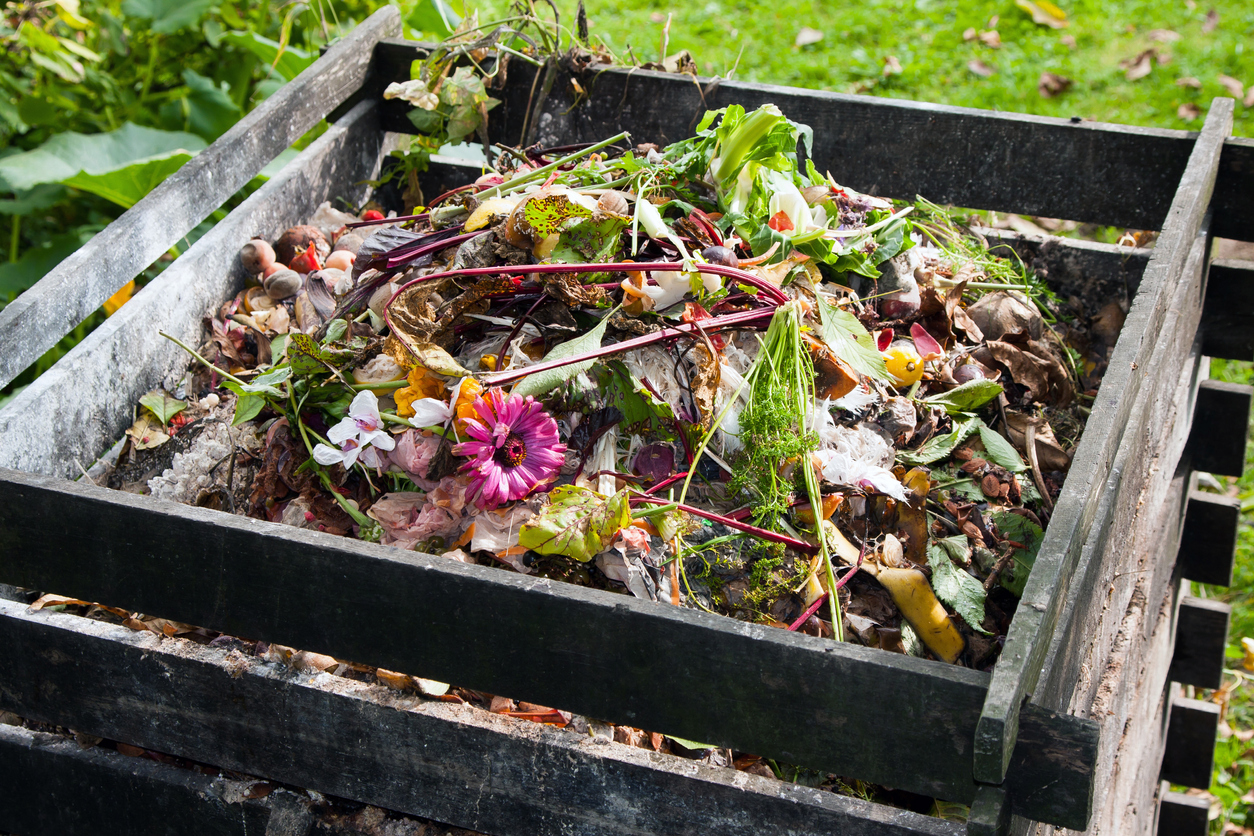It’s probably no surprise that I love compost. Ever since I began using compost in my garden, all my plants, vegetables, and herbs are happier than ever. And compost is generally worry-free, although I did run into a problem with my compost not heating up a little while back.
The problem with compost not heating up is that materials don’t break down into the garden-ready black gold we gardeners know and love. Plus, that heat is what kills weed seeds and pathogens. To get that heat, we have to think about the fact that compost is, in essence, a science project. So it’s important to get all the ingredients and conditions right.
Now before you worry that this is some highly calculated and complex microbiology that you haven’t even thought about since high school, relax. This is more like science vs. SCIENCE. Or perhaps that cool reaction that happens when you mix vinegar and baking soda vs. calculating fluid dynamics for NASA. In other words, yes, it is science, and it’s really cool science, and it’s relatively simple.
Discover 7 top tips for growing, harvesting, and enjoying tomatoes from your home garden—when you access the FREE guide The Best Way to Grow Tomatoes, right now!
What’s going on in there? A compost refresher
As a quick refresher (and because you’ll want to know this for troubleshooting any compost not heating up to hot enough temperatures), here’s how compost works.
As your organic waste piles up, microorganisms begin to break it down into its most basic elements. In order for these microorganisms to do their thing, they need carbon, nitrogen, water, oxygen. The carbon and nitrogen come from the materials you compost, such as grass, dead leaves, kitchen waste, and so on.
Generally speaking, your fruits and vegetables provide nitrogen to the compost, and the carbon comes from plant materials like grass or wood chips. This is that “brown and green” mixture you hear about.
As the microbes start working, they generate heat. That’s how you know your process is working. There are differing opinions on the exact temperature your compost pile should reach, but most agree that anything over 160 degrees Fahrenheit is too hot. And you’ll need it to hit at least 140 degrees Fahrenheit to work. (There is some debate on the minimum temperature, but 140 seems to be the sweet spot.)
So if you run into your compost not heating up, that means you just have a big pile of smelly kitchen waste in your back yard. Yuck!
*I should also note that there is another kind of composting that is oxygen-free. This anaerobic composting, known as bokashi composting, is fascinating in its own right, but this post is specifically about the more common aerobic composting.
Is that pile of compost not heating up? Here’s why (and what to do about it)
Water, oxygen, nitrogen, and carbon: Those are the four elements we need to get our compost moving. And we need them in the relatively correct amounts. That’s usually the first place to start looking when you’re troubleshooting your compost not heating up.
1. Fix your ratios. This is a good place to begin when you’ve got cold compost. We generally stick with a 50/50 ratio of brown and green, but if you have that and your compost still isn’t getting hot, don’t forget about the water and oxygen. Especially in hot conditions or droughts, a compost pile can dry out, so you may need to add some water. Oxygen, as well, can get depleted as those microbes do their work. Use a rake, shovel, or pitchfork to give your compost heap a few turns and renew the oxygen in the pile.
2. Make a bigger pile. Another problem that comes up a lot is that a compost heap won’t heat up because it isn’t large enough. Smaller compost piles can’t retain heat or may not have enough material to build up heat in the first place. The caveat here is that a too-large compost pile may heat up too much and kill off the microorganisms that make compost happen, at which point your formerly very hot compost pile won’t heat up. You may need to trial and error this a little, depending on the materials in your compost pile, but most people find a compost heap somewhere in the three-foot-tall range to work.
3. Add compost. Why would you add compost to a pile of compost not heating up already? Those microorganisms that break down the materials most often come from the soil below a compost pile. If for some reason, those microorganisms can’t make it into your compost pile, they won’t be able to work for you. This may happen if your compost pile is raised off the ground or if there’s a barrier between the ground and the compost. If that’s the case, try adding finished compost and mixing it in.
Remember, though, compost happens naturally in the wild. It’s been happening since long before we humans were here. It is science, but it’s art, too. So don’t stress if things don’t seem to be working. Just try a different approach until you figure out what the problem is.
Have you had trouble with your compost not heating up? How did you fix it?
Discover 7 top tips for growing, harvesting, and enjoying tomatoes from your home garden—when you access the FREE guide The Best Way to Grow Tomatoes, right now!

One reply on “Compost Not Heating Up? 3 Ways to Fix Slow Composting”
Can you compost during the winter months?